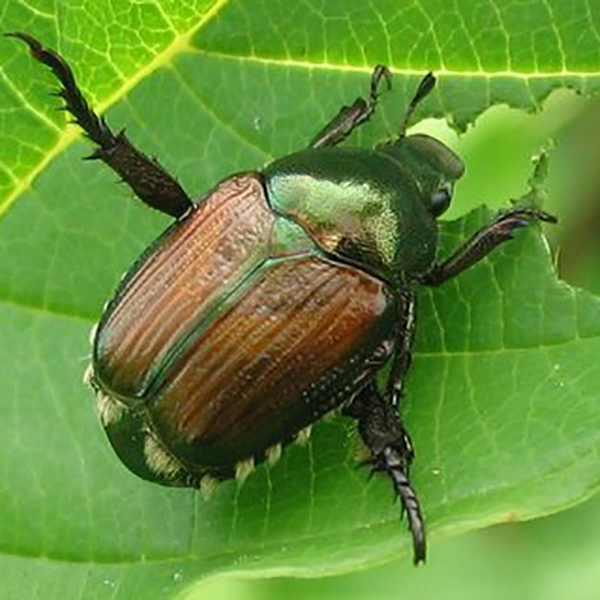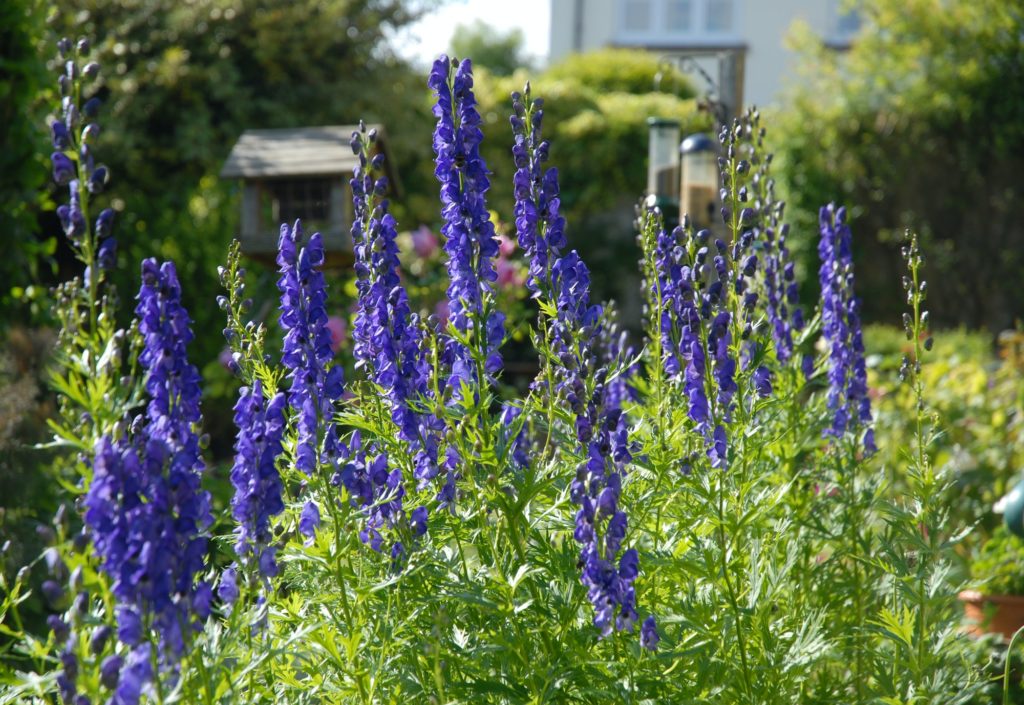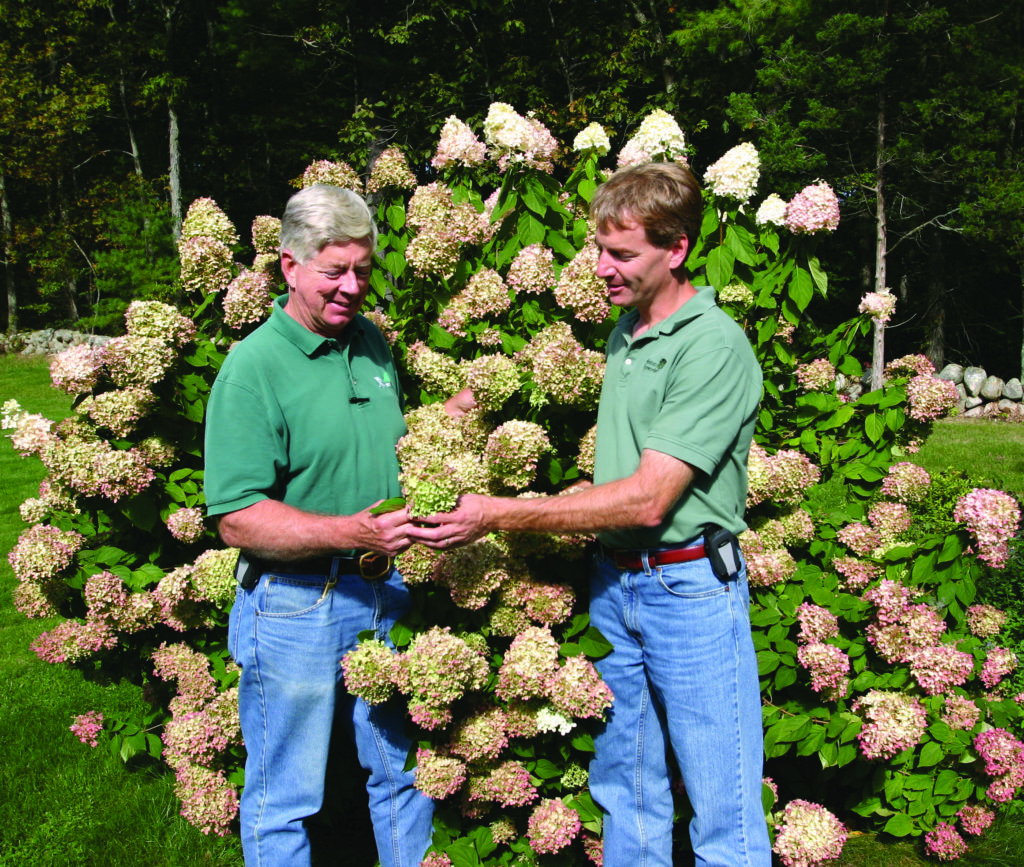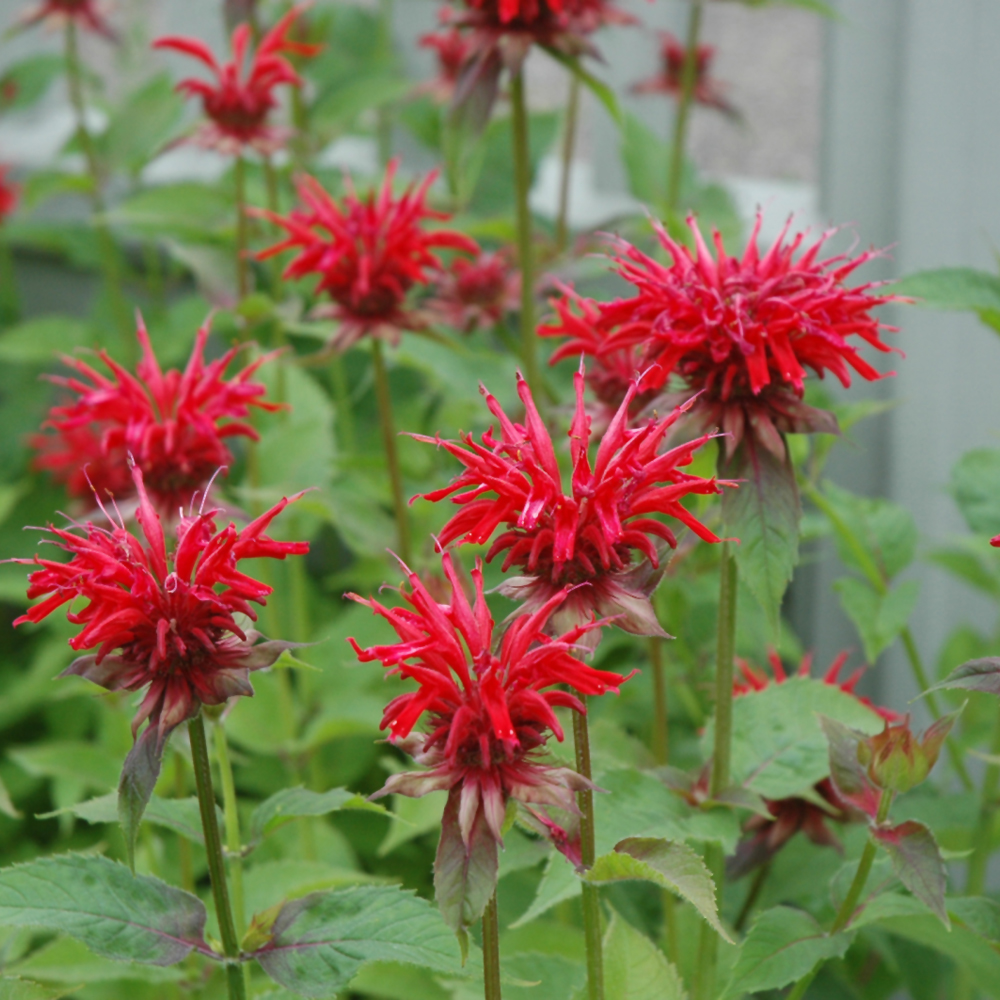
By Dirk Coburn, Horticultural Specialist at Weston Nurseries
I recently ran into a neighbor who knows about my secret life as a horticultural specialist. “Help!” she cried. “Japanese beetles are devouring my roses!” We have recently gotten similar calls at the Horticulture Desk.
Let me start at the beginning. If there are many Japanese beetles in your neighborhood, then one or more residents probably have had a lawn grub problem. If you find areas of your lawn not just going brown but also collapsing and lying flat, your lawn may be fostering the beetles in the grub stage. Once the beetles are out in force it is too late to stop the current generation of beetles in the grub stage. However, in the beginning of August you can stop the next generation with a variety of anti-grub products. If grubs are an issue for you, you might consider inoculating your lawn next year with Milky Spore, a beneficial bacterium offered by St. Gabriel Laboratories.
Plants susceptible to Japanese beetles in the adult stage are those that produce all new foliage each year. The beetles may also go after flowers or fruit. Most evergreen foliage is unattractive to Japanese beetles. Japanese beetles start feeding on low-growing plants within about 6 feet of the ground and then migrate to the lower branches of trees. It may not be a top priority to treat large shade trees for Japanese beetle, as the feeding is usually limited to a small portion of their lowest foliage and is very rarely a health problem. If you know that particular trees or shrubs have been attacked in the past, applying the systemic Bayer Advanced Tree & Shrub Insect Control product to those plants as a root drench will protect them for a year or more. This should be done in the early fall or in the spring.
So what can you do now if you have Japanese beetles? You may protect either entire parts of your landscape or specific beds or plants by spraying ornamental beds and plantings that you wish to protect with a systemic product like Bayer Advanced 3-in-1 Insect, Disease, & Mite Control. An advantage of this product is that one application should be effective for the entire life cycle of the beetles. Do not use this product, however, on food plants.
To protect plants that produce food, you can spray them with a contact insecticide like Bonide’s Eight. Due to the mobility of Japanese beetles, a single application of Eight is often not very effective. I recommend three applications, 7 to 10 days apart and done at times when there is no rain forecast for the following 24 hours.
With either the 3-in-1 product or Eight, avoid spraying open flowers that are visited by bees and spray in the late afternoon when bees are not foraging.













